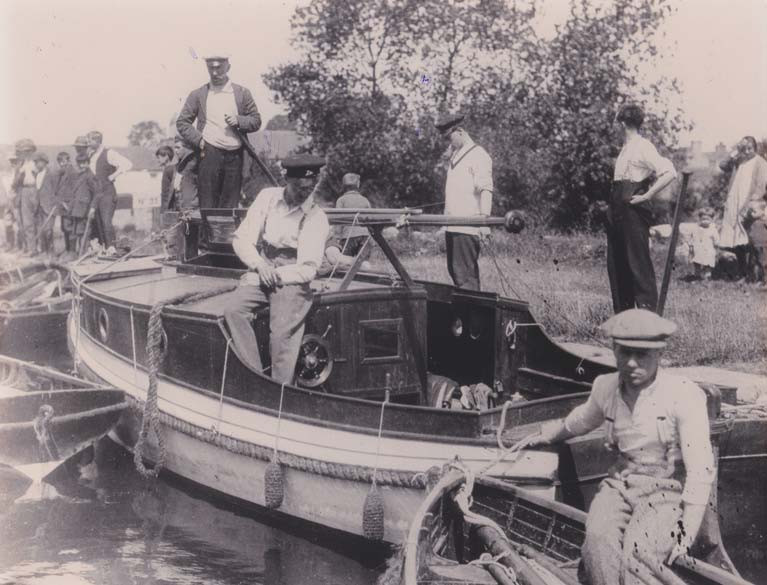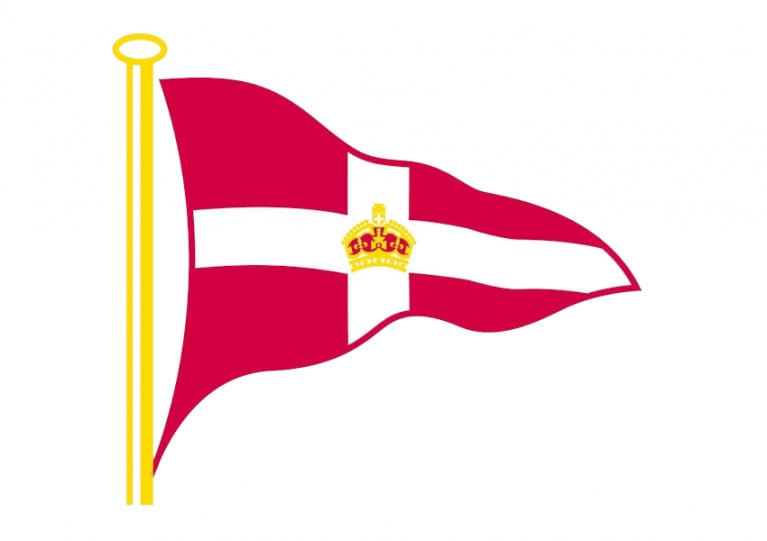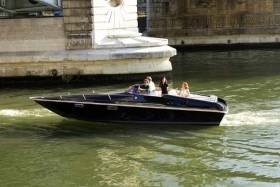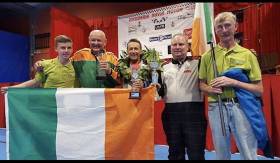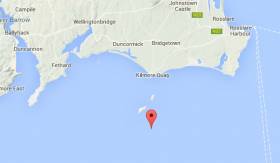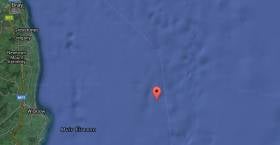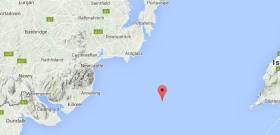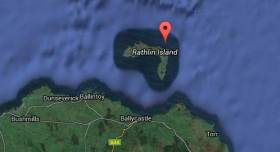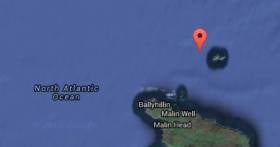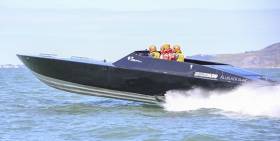Displaying items by tag: Powerboat
While we are in 'shutdown' mode due to Covid19 I have taken the opportunity to write a book about 'THE MOTOR YACHT CLUB OF IRELAND' which thrived from 1907 until its demise in about 1935.
The club was active in Clontarf, Pembroke (where the Dodder meets the Liffey), Kingstown/Dun Laoghaire, Waterford, Ahlone, Tarmonbarry, Lough Bofin and Boderg, River Bann and Belfast Lough.
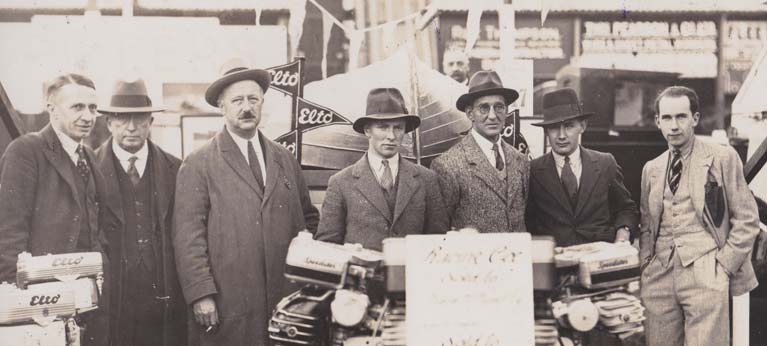 Key Motor Yacht Club of Ireland men from left to right: C.H. Warren, Dr V.S. Delany (Longford), T.H.R. Craig (Solicitor, Frederick St), Alf Delany (Trinity College Dublin), Col. Mansfield, D.McMorrogh, D.P.C. Plunkett
Key Motor Yacht Club of Ireland men from left to right: C.H. Warren, Dr V.S. Delany (Longford), T.H.R. Craig (Solicitor, Frederick St), Alf Delany (Trinity College Dublin), Col. Mansfield, D.McMorrogh, D.P.C. Plunkett
Among the families who took part were: Delanys, Sargents, Wallers and Meldon families.
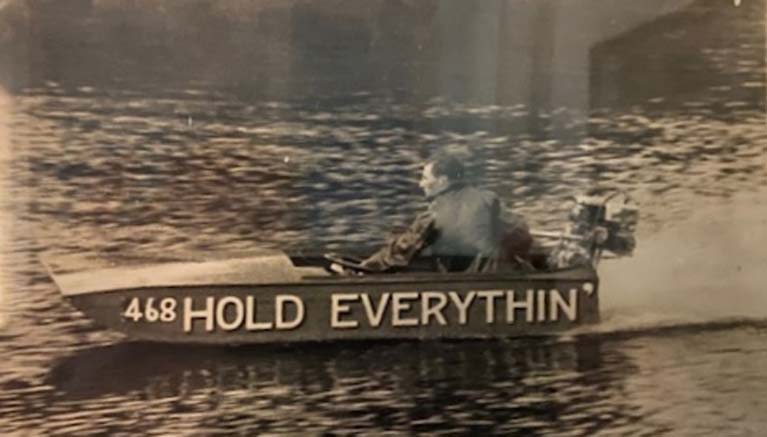 Motor Yacht Club racing - H.E.1 at speed
Motor Yacht Club racing - H.E.1 at speed
I am interested in hearing from anybody who can provide me with photographs, programmes and anecdotes.
Book Now For Powerboat Training At The RSGYC
Places are still available for the latest powerboat training course at the Royal St George Yacht Club later this month.
The two-day course, on Saturday 29 February and Sunday 1 March from 8.45am to 5pm, provides the ideal way to get afloat for the first time, or to build on skills you already have.
The Irish Sailing syllabus Powerboat II course (National Powerboat Certificate) will formally teach you the fundamentals in the safe operation of a powerboat, its preparation and allied aspects, while helping you to build your confidence on the water and get the most from your RIB or powerboat in a safe and comfortable manner.
This weekend course (which will also run in May) is priced at €260 which includes all course materials, instruction and certifications. Book online via the RSGYC website HERE.
Black Swan is First All-Electric Passenger Boat Powered by ‘Second Life’ Batteries
Renault has worked in partnership with French specialist maritime company Seine Alliance and electric propulsion experts Green-Vision to develop the first all-electric passenger boat powered by ‘second life’ batteries. Called Black Swan, the new craft represents the first step towards Seine Alliance’s commitment to an all-electric river cruise fleet by 2024.
Due to go into service in 2020, Black Swan can carry up to eight passengers and pioneers the use of lithium-ion batteries that have already had their ‘first car life’ in Renault Z.E. vehicles. After being reconditioned these cells are used to power a pair of 20 kW electric motors that allow two hours cruising on the River Seine in Paris, while full charge will take just two to three hours.
The Black Swan is based on an existing craft built by Italian firm Tullio Abbate. Originally powered by a traditional internal combustion engine, it now features four ‘second life’ batteries housed in specially designed, water-tight stainless steel containers located beneath the boat’s bench seats. The batteries and motors together weigh 278kg, which is less than the combined total of the original fuel tank and engines.
As a pioneer and leader in electric vehicles, this project continues Renault’s commitment to sustainability and the circular economy, which aims to reduce energy use and the extraction of raw materials by the re-use and refreshing of existing resources. Examples include Renault’s involvement in Smart Fossil Free Island on Porto Santo, Portugal, where resident volunteers drive Renault Z.E. vehicles that can feed energy back into the island’s electricity grid when not being used. Renault ‘second-life’ batteries are also used to store excess energy produced by the island’s solar and wind farms.
Last weekend in Navia, Asturias, Spain, Hr850 and T850 Powerboat racing teams competed and represented their countries at the highest international level, the UIM World Championships. Within this group was Team Powerboat Ireland, a group of Irish Powerboat enthusiasts made up from members of North East Powerboat and Racing Club and the Irish Powerboat Racing Club.
Will Chambers (Hr850 Driver), Oliver Haire (T850 Driver) Denis Dillon (T850 Driver) Simon Haire (Crew) Dick Corley (Mechanic) veterans of previous UIM European Championships decided to pool their talents under the Banner of “Team Powerboat Ireland” and with the support of the ISA as the UIM National Authority, travel to the World Championships, represent their country and hopefully bring back UIM World Championship medals to Ireland.
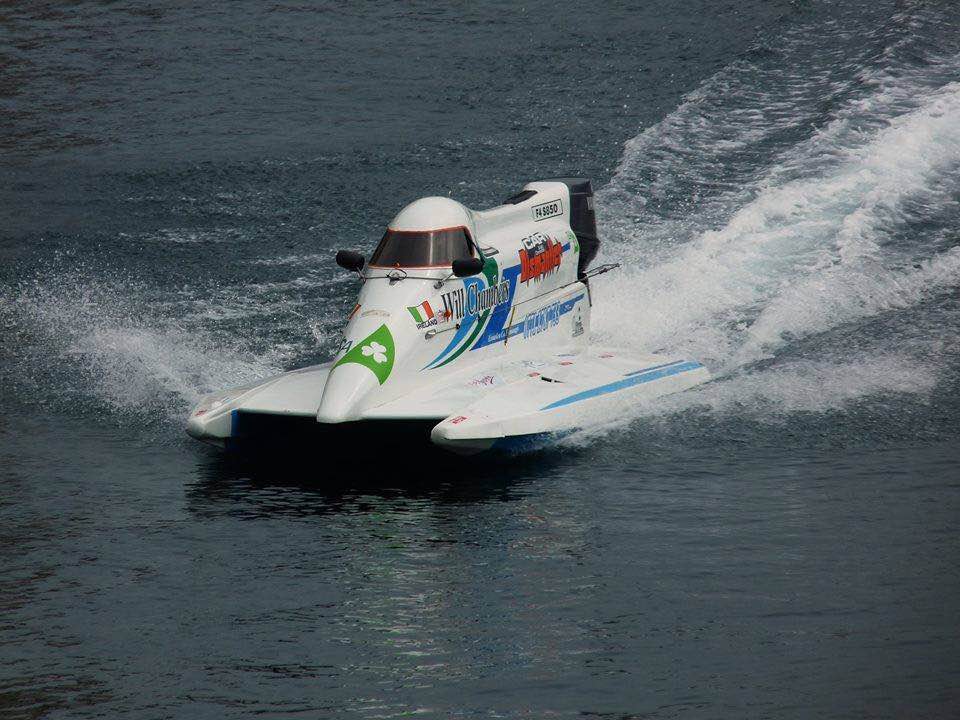
The competition would not be easy as the Team found out on day 1. Will Chambers following on from his success at Navia the previous year with a UIM Silver in the European Championships was determined to follow up with a World Championship podium place. Competitive from the start he was up at the front when his race boat was holed and he had to abandon the race and lift his boat to safety. Oliver Haire also had the mechanical gremlins strike and was also lifted to safety. With no points on the score sheet for both Will and Oliver, Day 2 seemed a long way away and decisions had to be made as to what the Team would do. A Team meeting was held and a decision was made to work some long hours and repair the holed HR850 and replace the engine powerhead in the T850.
When Day two dawned, Team Powerboat Ireland were ready and with Denis Dillon having the only points on the scoresheet they knew it would be a challenge that would see man and machines pushed to the limit. And to the limit they were pushed with Will Chambers working his way up the standings with two fine second place finishes in the final heats which saw him take 3rd place overall in the HR850 Class and a UIM World Championship Bronze Medal.
There was to be no podium places for Denis Dillon and Oliver Haire but both finished in the rankings and were presented with their trophies. All were delighted that they had represented their country as best as they could and they knew they had competed against the best in the world. Plans are already afoot as to how to gain the extra edge that will see them advance in the standings for 2017.
A statement from the Team shortly after the final results:
“It’s being an amazing two days of racing, we have put blood sweat and tears into every practice, every qualifying, every race heat and we followed this up with a long evening maintaining both man and machine. During the event, we never let our passion determination and teamwork falter and for Will Chambers to achieve a UIM World Championship Bronze Medal It made the trip all worthwhile.
We knew when we left Ireland for the long journey to Spain that we would be competing against the best competitors in the world, this did not deter us and it just goes to show what a few guys with determination and Teamwork can achieve. We are very proud to have represented IRELAND on the World Stage and to bring back a “UIM World Championship Medal” in the HR850 Class is an honor and a privilege for all of us. The Team believes we have shown like our P750 racers before us what can be achieved, we feel with the right support & sponsorship, Irish Powerboat Racing Teams & Clubs working together can ensure that Team Ireland competes in UIM European & World Championships into the future, in regard to our UIM Medals we hope they are many more to come.”
Hibernia Round Ireland Powerboat Record Update: 17.00
Hibernia Round Ireland Powerboat Record Update: 15:34
Hibernia Round Ireland Powerboat Record Update: 14:30
Hibernia Round Ireland Powerboat Record Update: 12:56
Round Ireland Powerboat Record Bid This Weekend
A bid to break the 2009 Round Ireland powerboat record will be made this weekend. Venture Cup entrant John Ryan and his Team Hibernia crew will make an attempt at the record on Sunday. Starting in Kinsale on the South Coast, Ryan and his four man crew will need to be back in the Munster harbour within 19 hours if they are to break the seven–year–old record set in a time of 18 hours 38 minutes and 50 seconds.
Hibernia Racing's 100 mph –ALLBLACK SL44 entry is built for marathon racing and has a range of 500–miles, making it possible for the circumnavigation to be made with just one refuel stop. The sleek aluminium built craft was testing in Cork Harbour a month ago and was powering around Dublin Bay in the past fortnight as preparation for the now cancelled Venture Cup.
The 2009 record holder Philip Fitzgibbon will be part of this weekend's attempt and joins the four–man crew as navigator. Sean McNamara and Denis Dillon complete the line–up.
'We''re going clockwise from Kinsale. I'm keen to get the Atlantic out of the way first', Ryan told Afloat.ie this afternoon.
Fitzgibbon and Mike Shanahan reclaimed their Round Ireland Powerboat Record powering over the Kinsale finish line to become the first team to set a sub 19–hour time for the circumavigation of Ireland in October 2009. The record was set in a 7.5 metre RIB powered by a 250hp engine.


























